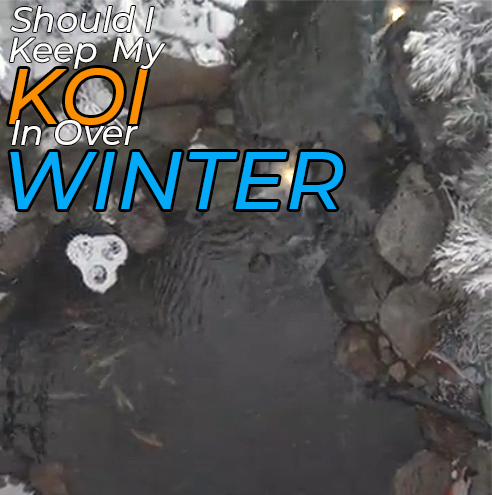
Can You Keep Fish in a Pond Outside All Winter in New Jersey?
Winter can be challenging for pond owners, especially in colder climates like New Jersey. As temperatures drop, you might wonder if it’s safe to leave your fish outdoors all winter. Fortunately, with the right preparation and care, koi and other hardy pond fish can survive New Jersey’s winter months safely. Here’s how to winterize your pond and help your fish thrive through the cold season.
1. Choose Cold-Hardy Fish Species
Certain fish species can withstand cold temperatures better than others. Koi and goldfish are particularly resilient, making them ideal for New Jersey ponds. Their metabolisms naturally slow in winter, allowing them to enter a state of dormancy. Other tropical or less-hardy fish may not survive prolonged freezing temperatures, so ensure your pond is only stocked with species that can handle winter conditions.
2. Ensure Adequate Pond Depth
One of the most crucial factors for winter survival is pond depth. In New Jersey, where temperatures can drop significantly, a pond should be at least
3 feet deep to prevent the water from freezing solid. At this depth, fish can safely stay in the warmer water that naturally sits below the frost line.
- Tip: If your pond is shallower than 3 feet, consider moving fish indoors or using a pond heater to maintain open water.
3. Stop Feeding Fish When Water Temps Drop Below 50°F
As water temperatures decrease, so does fish metabolism. Once water temperatures fall below 50°F, stop feeding your fish entirely. During winter, koi and goldfish enter a hibernation-like state, relying on stored body fat rather than active feeding.
- Tip: Invest in a pond thermometer to monitor water temperature accurately and know when to stop feeding.
4. Install a Pond De-Icer to Keep an Oxygen Opening
If ice forms over the entire pond surface, harmful gases like carbon dioxide can become trapped, and oxygen levels can drop. A pond de-icer maintains a small opening in the ice, allowing for gas exchange and keeping your fish safe. De-icers are relatively energy-efficient and will only keep a small area ice-free, which is all your pond needs.
- Alternative: If you prefer not to use a de-icer, a pond aerator can also create movement that prevents full ice coverage. Place the aerator near the pond’s edge so fish can remain in the warmer, deeper areas of the pond.
5. Reduce Pond Maintenance, but Keep Water Clean
While winter calls for a reduced maintenance routine, some upkeep is necessary to keep your fish safe. Remove debris like leaves and twigs before winter, as decomposing organic material can release harmful gases. Once winter sets in, avoid disturbing the pond as much as possible. Your fish will rest in the deeper, undisturbed water, and keeping the pond still is essential to their hibernation.
- Tip: Use a pond net in fall to prevent leaves from entering the water and reducing the need for mid-winter cleaning.
6. Avoid Breaking Ice Manually
If your pond does freeze over completely, resist the urge to break the ice manually. Hitting or cracking the ice can create shock waves that harm or stress your fish. Instead, rely on a de-icer or warm water poured in a specific area to create a hole safely.
- Tip: Pour warm (not boiling) water on the ice surface if an immediate opening is needed, being careful not to disturb the fish below.
7. Monitor Fish Behavior Occasionally
Even in winter, a quick check on your fish’s health is helpful. Koi and goldfish should appear calm and move minimally. If you notice erratic swimming or signs of stress, it could indicate low oxygen levels or other water quality issues. In this case, increase aeration or consult a pond professional for advice on adjusting winter conditions.
Final Thoughts
With the right preparations, keeping fish in a New Jersey pond over winter can be safe and stress-free. Providing a properly sized, deep pond, stopping feeding in cold temperatures, and ensuring gas exchange through a de-icer will help your fish thrive through the season. Winter doesn’t have to mean relocating your fish—just a few adjustments can keep them comfortable right in your outdoor pond.
Have questions about winter pond care? Contact us for professional tips on preparing your New Jersey pond for winter, ensuring a healthy and safe environment for your fish!
Enjoy a healthy, beautiful pond year-round by scheduling a fall pond cleaning today! Our professional team will ensure your pond is debris-free and ready to weather the winter.
Contact Atlantis Water Gardens to get started!
For more content with tips, tricks and amazing water feature goodness, check us out on
YouTube!
